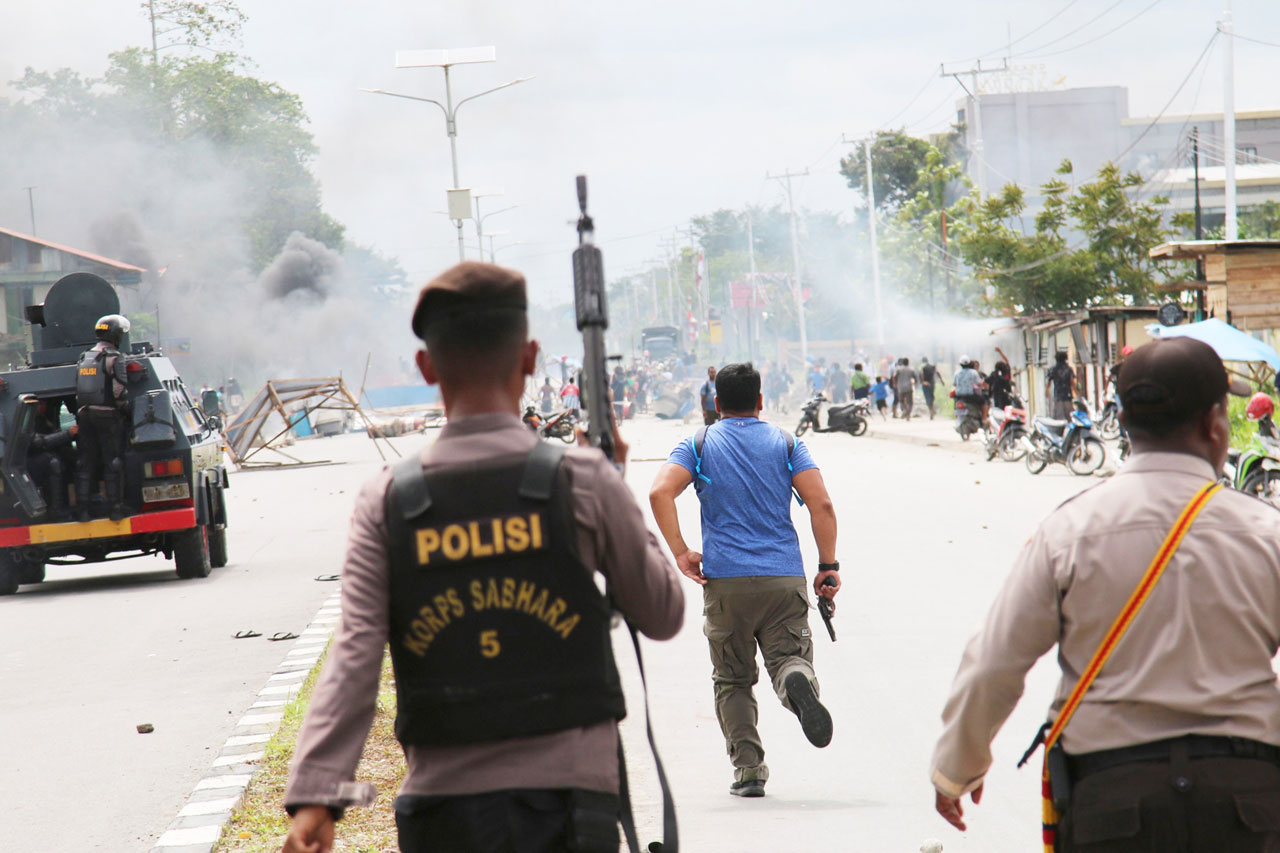Two weeks ago today, the Indonesian government decided to completely block public internet access in the provinces of Papua and West Papua, justifying the restriction as necessary to prevent the spread of inflammatory fake news that could escalate the protests and riots that had erupted in cities across the region. Yesterday, Indonesia’s minister of communications and information technology, Rudiantara, said that block would be partially lifted today.
“Now we are coordinating with the regencies and cities. Tonight, hopefully we will have (the data). So that tomorrow it can be done gradually, reactivating the data services in several regencies and cities,” Rudiantara said at the Presidential Palace yesterday as quoted by Liputan 6.
The IT minister said that the internet block would only be lifted in regencies and cities where public order had been judged to be fully restored. He did not indicate which areas that would include.
We have not yet seen any reports from people in Papua or West Papua reporting that internet has been restored to them today. In fact, another senior government official, Coordinating Minister for Political, Legal and Security Affairs Wiranto, gave a contradictory statement to Rudiantara’s yesterday in which he said that internet access would only be restored to the provinces tomorrow, assuming the security situation was under control.
“On the 5th (of September). Today is the 3rd. On the 5th, if things have completely calmed down, we will bring back the internet,” Wiranto said during a press conference at the Justice and Human Rights Ministry’s Office in Jakarta yesterday as quoted by Antara.
Wiranto said he had requested that internet access be restored quickly and said that the security situation in the Papua region was “90 percent stable”.
The senior security minister also said that the number of hoax stories about Papua had already been greatly reduced, although not completely.
That also seemed to be in contradiction to statements made yesterday by Rudiantara, who claimed that hoaxes were still a serious concern as his ministry had found 550,000 URLs spreading fake news, mainly via Twitter. The IT minister also claimed that much of the fake news was coming from 20 foreign countries, mainly in Europe. That accusation would be in line with a statement made by the chief of the national police, who said on Sunday that authorities suspected that there were “foreign parties” involved in stoking unrest in Papua.
Also yesterday, Benjamin Strick, an open-source investigator for the BBC, published a piece on independent investigative news website Bellingcat in which he analyzed the connections between accounts using specific hashtags such as #FreeWestPapua, #WestPapuaGenocide, #WestPapua and #fwpc. He concluded from his network analysis that there was an “active bot network disseminating pro-government content through major social media platforms”.
Papua, where a low-level insurgency against Indonesian control has simmered for decades, has seen two weeks of mass protests and deadly riots sparked by anger over racism and fresh calls for self-rule.
The recent unrest appears to have been triggered by the mid-August arrest of dozens of Papuan students in Java, who were also racially abused.
Indonesia is deeply sensitive about Papua. In May, a Polish man was sentenced to five years in prison for plotting with rebels to overthrow the government in the province.
On Monday, Indonesia said it was deporting four Australians who had entered Papua — which shares a border with independent Papua New Guinea — on a yacht last month.
The group allegedly participated in a demonstration and raised the banned “Morning Star” flag, a symbol of Papuan nationhood.
With additional reporting by AFP





Brien Doyle says
Obviously – the Indonesia IT Minister fears free speech and freedom!!!